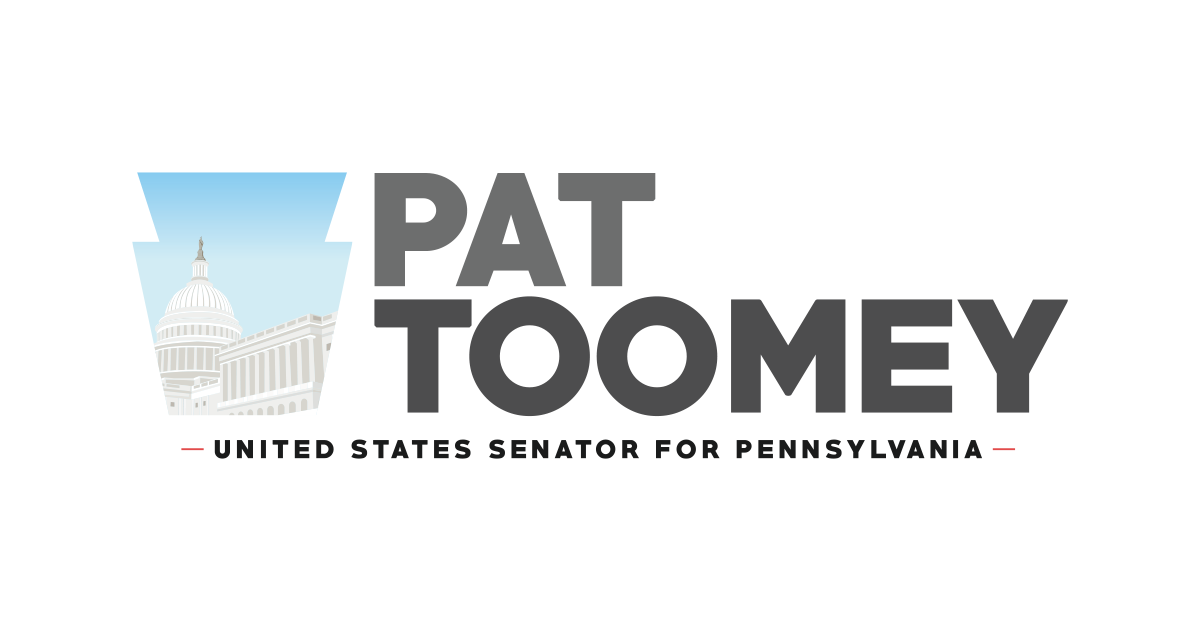Source: United States Senator for Pennsylvania Pat Toomey
Washington, D.C. – U.S. Senator Pat Toomey (R-Pa.) commended the Senate Finance Committee for advancing three of his bills as part of the Enhancing American Retirement Now (EARN) Act, the Committee’s comprehensive, bipartisan package of legislation that expands access to retirement resources and encourages saving for the future. Senator Toomey’s legislation—the Protecting Public Safety Employees’ Timely Retirement Act, State and Local Corrections Officer Retirement Fairness Act, and a compromise version of the Long-Term Care Affordability Act—will aid law enforcement, public safety officials, and individuals looking to plan for their futures by purchasing long-term care insurance.
“Saving for retirement reflects smart, long-term planning by American workers. I appreciate Senators Wyden and Crapo including in the EARN Act three bills I’ve authored that will enhance retirement security for many Americans: the Protecting Public Safety Employees’ Timely Retirement Act, the State and Local Corrections Officer Retirement Fairness Act, and an amended version of the Long-Term Care Affordability Act. I’d also like to thank Senator Bennet for his partnership on the Protecting Public Safety Employees’ Timely Retirement Act and the State and Local Corrections Officer Retirement Fairness Act,” said Senator Toomey.
Background on Senator Toomey’s bills:
The Protecting Public Safety Employees’ Timely Retirement Act amends the federal tax code so law enforcement officers can access their retirement funds penalty-free upon reaching retirement age. The tax code currently allows eligible law enforcement and public safety officers to withdraw from their retirement if they retire at or after the age of 50 due to the taxing nature of these jobs. However, federal officers are eligible for retirement prior to the age of 50 if they have completed 25 years of service. Under current law, when an officer retires prior to the age of 50 with 25 years of service, they are not allowed access to their retirement funds penalty free until the age of 59 ½, which is the age average Americans are able to withdraw from retirement accounts penalty free. Senator Michael Bennet (D-Colo.) introduced the Protecting Public Safety Employees’ Timely Retirement Act with Senator Toomey.
The State and Local Corrections Officer Retirement Fairness Act would require the federal tax code to treat state and local corrections officers the same as their federal counterparts by providing an exemption from a federal tax penalty imposed on early withdrawals from qualified retirement accounts. Due to the physically taxing nature of this profession, many officers retire prior to age 59 ½, which is the age in which individuals can withdraw from qualified retirement accounts without facing a 10 percent early withdrawal penalty. In 2015, Senators Toomey and Bennet introduced the Federal Public Safety Retirement Fairness Act, which made all federal law enforcement officers eligible for an exemption to the early withdrawal penalty. With the State and Local Corrections Officer Retirement Fairness Act, eligibility for this exemption would expand to include state and local corrections officers. Senator Bennet partnered with Senator Toomey to introduce the State and Local Corrections Officer Retirement Fairness Act.
Senator Toomey’s Long-Term Care Affordability Act as introduced would allow individuals to pay up to $2,500 each year for long-term care insurance with their 401(k), 403(b), and IRAs without a tax penalty. Retirement accounts give a tax benefit to workers who set aside money now for use during retirement. Early withdrawals from these accounts are generally treated as income and taxed accordingly and are also subject to an additional 10 percent tax on early distributions.
The Chairman’s mark includes a compromise version of the Long-Term Care Affordability Act. Under the Chairman’s mark, retirement plans are permitted to distribute up to $2,500 per year for the payment of premiums for certain specified long term care insurance contracts and such distributions would be exempt from the additional 10 percent tax on early distributions.
